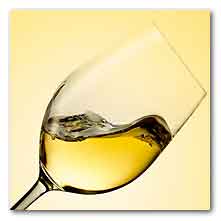|
Alcoholism inflicts a heavy physical, emotional and
financial toll on individuals and society. Now new
discoveries and promising animal studies are
offering a glimmer of hope that a new class of drugs
could treat the disease without many of the unwanted
side effects caused by current therapies.

Some drugs currently available to treat alcoholism
are aimed at dopamine. "They dampen out the dopamine
system a little bit, so you don't get so happy when
you have an alcoholic beverage," says James Cook,
Ph.D., a chemist at the University of Wisconsin,
Milwaukee. But these medications, derived from a
class of compounds called opioid antagonists, cause
depression in some patients, Cook notes. And they're
addictive themselves, which can lead to drug abuse.
Valium is an example of another common drug used to
treat alcoholism that is also addictive.
Looking for an alternative, Cook focused on
molecules known to cause some of the same results as
Valium and the opioid antagonists without the
unwanted side effects.
For almost two decades, Cook collaborated with the
late Harry June, Ph.D., a psychopharmacologist at
Howard University. They conducted laboratory tests
to understand the effects of these new compounds and
to discover which ones work best.
Now, V. V. N. Phani Babu Tiruveedhula, a graduate
student at the University of Wisconsin, Milwaukee,
has made several of these promising beta-carboline
compounds that could represent the future of
alcoholism treatment. Tiruveedhula simplified their
manufacture from eight steps to just two, while
increasing the yield tenfold and eliminating
unwanted byproducts.
Cook says these potential medications could be taken
orally.
In tests using rats bred to crave alcohol, the
scientists found that administering these compounds
drastically diminished the rats' drinking.
What's more, they observed very few of the side
effects common to alcoholism treatment drugs, such
as depression and losing the ability to experience
pleasure.
The drugs appeared to reduce anxiety in "alcoholic"
rats, but not in control rats. Because this is
different from what is seen with current drugs, the
researchers think the result hints that the new
compounds work much differently than opioid
antagonists. As such, the beta-carbolines may also
be less addictive.
"What excites me is the compounds are orally active,
and they don't cause depression like some drugs do,"
says Cook.
If everything works out, Cook says, a drug could be
ready for the market in five to six years.
This research was presented at the 250th National
Meeting & Exposition of the American Chemical
Society (ACS), the world's largest scientific
society.
See also
NIAAA to conduct clinical trial of new medication
for alcohol use disorder
For more information
American Chemical Society
MDN |